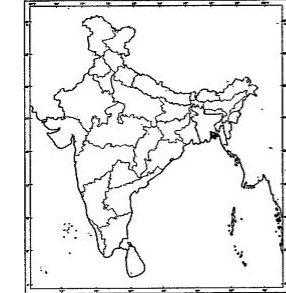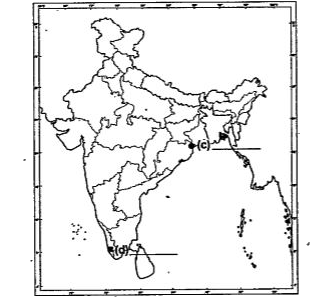Complete Solutions to QUESTIONS of chapter SOCIAL SCIENCE 2014-15 (OUTSIDE DELHI) of Class 10 book with complete answers and questions
| Class 10 | SOCIAL SCIENCE |
| Chapter | SOCIAL SCIENCE 2014-15 (OUTSIDE DELHI) |
| SHIV DASS | QUESTIONS |
| Number Of Questions | 28 |
| Academic Year | 2023-24 |
Explain any five reasons for bringing in large number of new readers among children women and workers during the late `19^(th)` century.
View SolutionIn what broad category do the soils of Maharasthra fall ?
View SolutionWhy do political parties involve partisanship ?
View SolutionHow can you say that democracies are based on political equality ?
View SolutionWhich local body has a 'Mayor' as its heaad ?
View SolutionSuppose your parents want to purchase Gold jewellery along with you, then which logo will you look for on the jewellery ?
View SolutionATM is an example of which sector ?
View SolutionDescribe the main features of 'Poona Pact'.
View SolutionDescribe the spread of Non-Cooperation Movement in the countryside.
View Solution"The relocation of industry to low-wage countries stimulated world trade and capital flows. " Justify the statement.
View SolutionWho were 'gomasthas' ? How did they become good partners of the British management system ?
View SolutionIn which three ways did the printed books at first closely resemble the written manuscripts ?
View SolutionHow can solar energy solve the energy problem to some extent in India ? Give your opinion.
View SolutionExplain the importance of railways as the principal mode of transportation for freight and passengers in India.
View Solution"Dynastic sucession is one of the most serious challenges before the political parties." Analyse the statement.
View Solution"A challenge is an opportunity for progress". Support the statement with your arguments.
View SolutionIndia comes under which type of federation and why ?
View SolutionOn the basis of which three indicators of HDI 2004 Sri Lanka has better rank than India ?
View SolutionExplain with an example how you can use the right to seek redressal.
View SolutionDescribe any five steps taken by the French Revolutionaries to create a sense of collective identify among the French people.
View SolutionWhat is the manufacturing sector ? Why is it considered the backbone of development ? Interpret the reason .
View SolutionWhich is the most abundantly available fossil fuel in India ? Assess the importance of its different forms.
View SolutionDescribe the vertical and horizontal forms of power sharing exercised in India.
View SolutionWhat is meant by a political party ? Describe the three components of a political party.
View SolutionThere has been a big change in the three sectors of economic activities, but a similar shift has not taken place in the share of employment'. Explain the above statement on the basis of facts.
View SolutionHow are multinational corporations (MNCs) controlling and spreading their production across the world ?
View SolutionLocate and label the place on the given outline political map of India :
(a) The place associated with the Peasants' Satyagarha.
(b) The place, where the Indian National Congress Session was held in December 1920.

View SolutionThe following features are to be located and labelled on the given India political outline map :
(a) Vishakhapatnam- Software Technology Park
(b) Korba-Thermal Pwer Plant
Identify the features marked on the same given India political map and write their names :
(c ) Iron Ore Mine
(d) International Airport

View Solution
QUESTIONS questions and complete solutions for chapter SOCIAL SCIENCE 2014-15 (OUTSIDE DELHI) of X BOARDS of Class 10